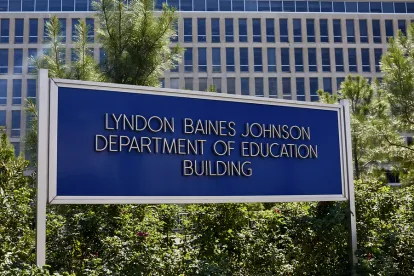Last month, the president signed Executive Order 14021, directing the Department of Education (DOE) to review the Trump administration’s controversial Title IX regulations and provide findings within 100 days. As we noted in our legal update about the Executive Order, it appeared likely that the DOE would revert to its positions in the 2011 “Dear Colleague Letter” that was rescinded by the Trump administration in 2017, but it remained to be seen what vehicle the DOE would use to do so given the arduous rulemaking process. We now know from an April 6 letter issued by DOE’s Acting Assistant Secretary for Civil Rights, Suzanne B. Goldberg, that the Office of Civil Rights (OCR) intends to immediately begin the process of reworking and replacing Title IX regulations, and will provide interim guidance on how the current regulations should be interpreted.
First, as part of its review, DOE is seeking input in school environments on the issue of sexual harassment, including sexual violence, through a public hearing in which stakeholders can offer oral and written comments. The dates, times, and logistics of the hearing have not been set yet.
Second, the DOE reiterated that the Title IX regulations that went into effect in August 2020 remain in effect for now. In particular, OCR states that it will continue to ensure schools have grievance procedures that provide for the fair, prompt, and equitable resolution of sexual harassment and other sex discrimination reports. OCR, however, will issue a Q&A document in the next few months that will provide additional clarity about how it will interpret schools’ obligations under those regulations going forward.
Third, the DOE signaled that it intends to pursue the complex and time-consuming process of rescinding and replacing the current Title IX regulations.
We will continue to follow these developments closely. As noted in our previous legal update, in addition to the constantly changing federal guidance and regulations on Title IX compliance, some states have issued their own laws related to sex or gender discrimination and campus sexual assault. Massachusetts’ new campus sexual assault law takes effect on August 1, 2021, for example. Robinson+Cole is well-versed in Title IX issues and is available to assist schools in staying current with evolving DOE guidance, case developments, and state law requirements.




 />i
/>i

